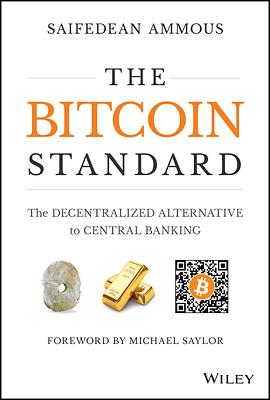內容簡介
內容簡介 了解比特幣歷史、特性、用途與未來的基本指南比特幣是具有金錢功能的最新科技,提高了數位時代的技術可行性,以解決所有人類存在現實的持續難題:如何不受時空限制來移動經濟價值。這是一本幫助您瞭解比特幣經濟,並透過歷史上曾經實踐金錢功能的多種技術,來了解比特幣如何作為這些可行技術的數位版本的書。本書並非廣告行為或是邀請大家來購買比特幣。正好相反,比特幣的價值可能會繼續波動,而且至少還需要一段時日,而且比特幣網路也可能因為可見或不可見的因素,導致成功或失敗。它在使用上也需要技術能力與面對風險,因而對許多人來說並不適合。所以本書並不提供投資建議,但會協助評估其網路與操作的經濟屬性,讓讀者能在決定是否投資之前,預先了解情況。只有在對擁有和儲存比特幣的實際操作方面,進行過廣泛而深入的研究之後,您才應該考慮是否持有比特幣。由於比特幣市場價值的飆升,讓它看起來像是無腦式的投資,但仔細研究無數的網路駭入與駭客攻擊、詐騙及安全漏洞等讓人們失去比特幣的事件,對那些覺得比特幣可以提供穩定獲利的人,都是一種警告。如果在閱讀本書後,認為值得擁有比特幣。你的首要投資不應該是購買比特幣,而是投資時間來了解如何安全的購買、儲存和擁有比特幣。比特幣具有這種相關知識無法委外的本質特點,任何對使用這個網路感興趣的人,都無法推托個人責任,這便是進入比特幣世界所需要進行的真正投資。本中文書介出自《比特幣標準: 中央銀行的去中心化替代方案》碁峰資訊股份有限公司出版When a pseudonymous programmer introduced “a new electronic cash system that’s fully peer-to-peer, with no trusted third party” to a small online mailing list in 2008, very few paid attention. Ten years later, and against all odds, this upstart autonomous decentralized software offers an unstoppable and globally-accessible hard money alternative to modern central banks. The Bitcoin Standard analyzes the historical context to the rise of Bitcoin, the economic properties that have allowed it to grow quickly, and its likely economic, political, and social implications.While Bitcoin is a new invention of the digital age, the problem it purports to solve is as old as human society itself: transferring value across time and space. Ammous takes the reader on an engaging journey through the history of technologies performing the functions of money, from primitive systems of trading limestones and seashells, to metals, coins, the gold standard, and modern government debt. Exploring what gave these technologies their monetary role, and how most lost it, provides the reader with a good idea of what makes for sound money, and sets the stage for an economic discussion of its consequences for individual and societal future-orientation, capital accumulation, trade, peace, culture, and art. Compellingly, Ammous shows that it is no coincidence that the loftiest achievements of humanity have come in societies enjoying the benefits of sound monetary regimes, nor is it coincidental that monetary collapse has usually accompanied civilizational collapse.With this background in place, the book moves on to explain the operation of Bitcoin in a functional and intuitive way. Bitcoin is a decentralized, distributed piece of software that converts electricity and processing power into indisputably accurate records, thus allowing its users to utilize the Internet to perform the traditional functions of money without having to rely on, or trust, any authorities or infrastructure in the physical world. Bitcoin is thus best understood as the first successfully implemented form of digital cash and digital hard money. With an automated and perfectly predictable monetary policy, and the ability to perform final settlement of large sums across the world in a matter of minutes, Bitcoin’s real competitive edge might just be as a store of value and network for final settlement of large payments―a digital form of gold with a built-in settlement infrastructure.Ammous’ firm grasp of the technological possibilities as well as the historical realities of monetary evolution provides for a fascinating exploration of the ramifications of voluntary free market money. As it challenges the most sacred of government monopolies, Bitcoin shifts the pendulum of sovereignty away from governments in favor of individuals, offering us the tantalizing possibility of a world where money is fully extricated from politics and unrestrained by borders.The final chapter of the book explores some of the most common questions surrounding Bitcoin: Is Bitcoin mining a waste of energy? Is Bitcoin for criminals? Who controls Bitcoin, and can they change it if they please? How can Bitcoin be killed? And what to make of all the thousands of Bitcoin knock-offs, and the many supposed applications of Bitcoin’s ‘block chain technology’? The Bitcoin Standard is the essential resource for a clear understanding of the rise of the Internet’s decentralized, apolitical, free-market alternative to national central banks."
作者介紹
作者介紹 SAIFEDEAN AMMOUS, PHD, is a Professor of Economics at the Lebanese American University, and member of the Center on Capitalism and Society at Columbia University.
